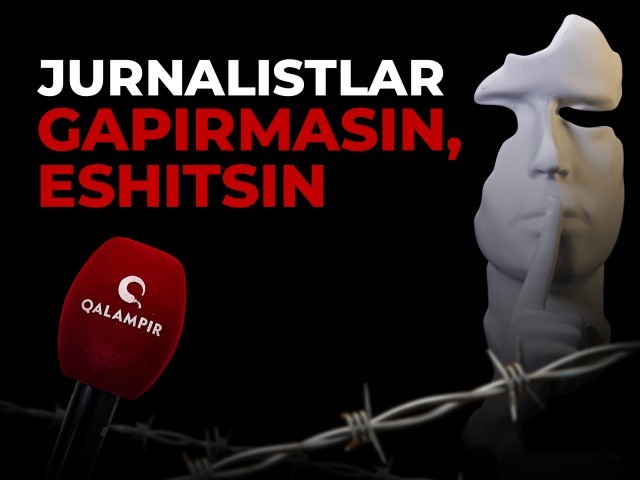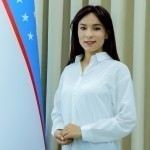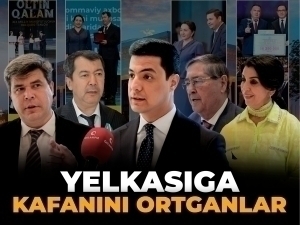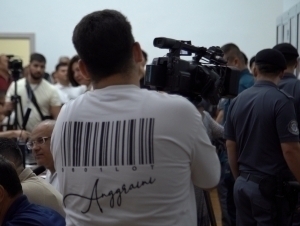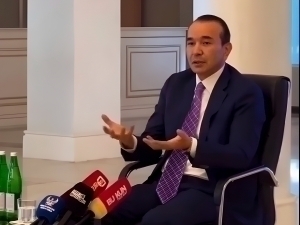Journalists should not speak, let them listen to
Review
−
03 May 2023 15820 5 minutes
Journalists worldwide celebrate the 3rd of May each year as World Press Freedom Day while major international think tanks announce levels of free activity experienced by journalists and the level of freedom of speech in countries.
This day is also widely celebrated in Uzbekistan with celebrations and events. However, every year the country ranks relatively low in the published reports by the international organization "Reporters Without Borders." Uzbekistan is often placed among the countries where freedom of speech is deemed as "suffocated."
Although Uzbekistan managed to move forward in the ranking in 2019, 2020, 2021 and 2022, it is still regarded as a country with a low level of "freedom of speech."
"There is a lot of work to be done regarding freedom of speech in Uzbekistan. For example, in recent times bloggers and journalists have been subject to negative attitudes and actions from officials. This leads to an international perception that Uzbekistan's freedom of speech is limited and it also impacts the ratings negatively.
Furthermore, these issues can result in a decrease of confidence in the effectiveness of the President's reforms," said the Reporters Without Borders statement of 2022.
Some Uzbek journalists commented that some state organizations are closed to the mass media.
QALAMPIR.UZ explains another problem on the World Press Freedom Day - an attempt by government employees and leaders to avoid media questions, using the example of today's huge lack of press conferences.
A press conference is a media event where famous people or organizations invite journalists to listen to their presentations and then ask questions.
A briefing is a short press conference dedicated to one issue. Unlike the aforementioned press conference, a briefing does not have a question-and-answer segment.
While a briefing usually lasts 10-15 minutes, a press conference can last several hours. More press conferences are preferable for mass media representatives, as the debate between representatives of state bodies and journalists, questions and answers to them are of great importance. Such press conferences are held in each state body, organization and agency, but mainly in the Agency of Information and Mass Communications (AIMC) under the President of the Republic of Uzbekistan.
However, in the last few months of 2023, very few press conferences have been held in AIMC.
If we look at exact numbers, a total of 53 briefings have been held at AIMC in January of this year. The number press conferences that have taken place is only 2.
In January 2022, 46 briefings and 11 press conferences were held.
Even during the severe pandemic, in January 2021, press conferences organized to answer journalists' questions were held 29 times. At this time, the number of briefings held to provide information about short messages was equal to 41.
In February 2023, 40 briefings were held, and a press conference was organized 11 times to answer journalists' questions.
This figure in 2022 was 13 press conferences, and 42 briefings.
In February 2021, 21 briefings and 25 press conferences were held.
The number of press events in March this year is much less than in previous years. During the entire month of March, state bodies, offices and organizations in Uzbekistan held 28 briefings and only 9 press conferences to provide reports and information to the public, while in March 2022, their number was 41 briefings and 18 press conferences. As above, the number of press conferences in 2021 was 19, and 34 for briefings.
There were no press conferences held in the building of AIMC in April this year. An official from the agency explained this saying that state agencies have started holding such press events in their building. However, observations by QALAMPIR.UZ show that in this month only, the press conference dedicated to the III International Festival of Giving was held at the Ministry of Culture and Tourism.
In addition, the number of briefings held in April was 25.
Last year, 55 briefings and 17 press conferences were held during this month, where journalists had the opportunity to ask questions.
The indicators of April 2021 are also enviable - 74 briefings and 18 press conferences.
It is evident that that the number of public reports of state bodies has decreased sharply. Therefore, the opportunities for journalists and bloggers to interrogate and interview state officials in the AIMC building have decreased.
With such limited access as this, journalists and bloggers had no choice, but to write a letter to the state organization in order to get an interview on important topics.
Frustratingly, these letters often do not receive a response, or if a response does arrive, it arrives too late.
To give a specific example, on the 15th March this year, the editors of QALAMPIR.UZ sent a request to the Tashkent city administration to conduct an interview with Bakhtiyor Rahmonov, who was the acting mayor at that time. The editors wanted answers to questions relating to current problems in the streets of the capital, such as the issues surrounding road repairs, which were resulting in drivers' having to break rules due to the infrastructure problems. However, the government neither granted the interview, nor gave a reason as to why it was refused. Between 20-30 days later a response letter was received on behalf of only two districts.
This is, of course, only a case related to our editorial office. There are in fact, many other cases where journalists and bloggers have been refused.
So, can Uzbek journalists and bloggers celebrate 3 May - World Press Freedom Day as a "holiday" in circumstances such as these?
Will the officials, who look the other way when they see media microphones, those who avoid holding press conferences for fear of answering questions, answer this question?
Live
All